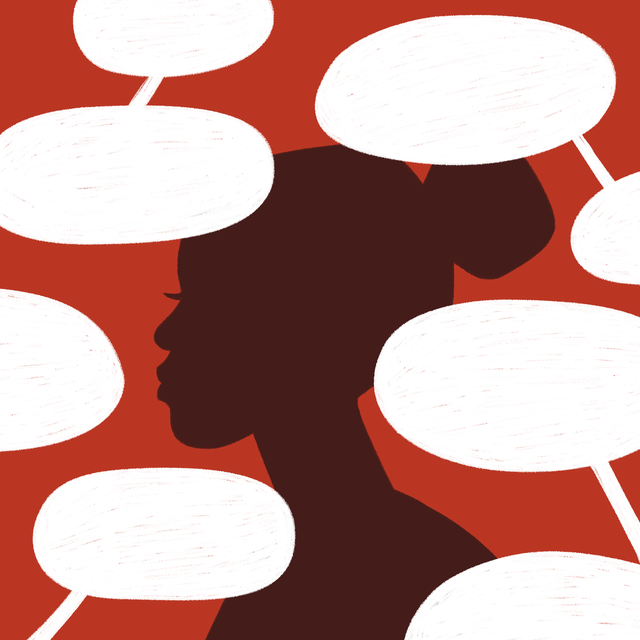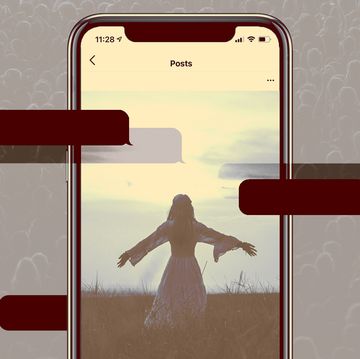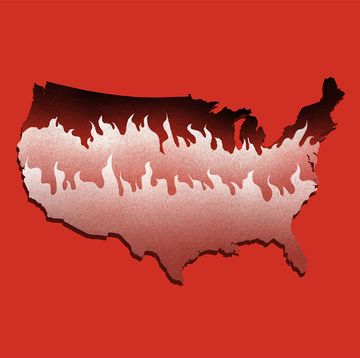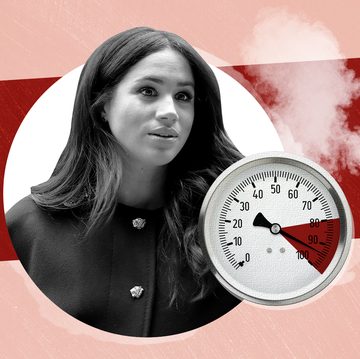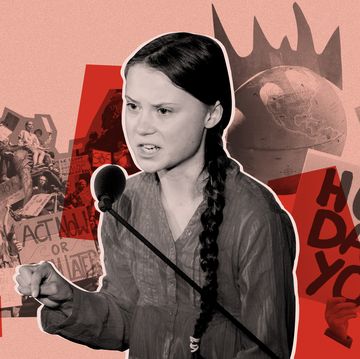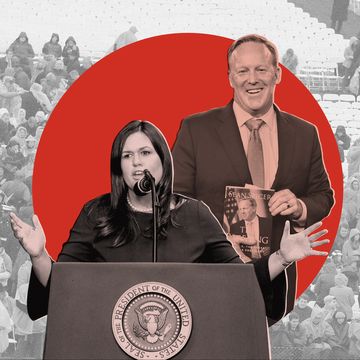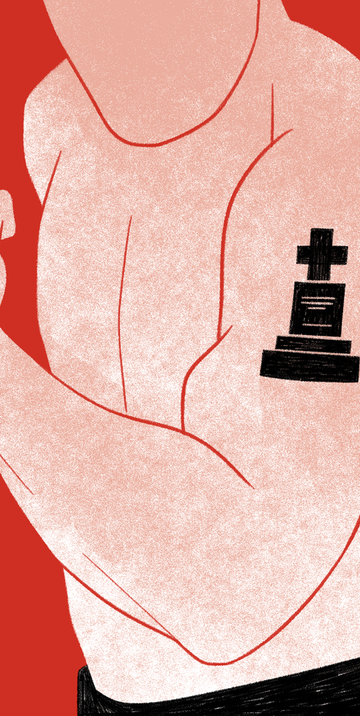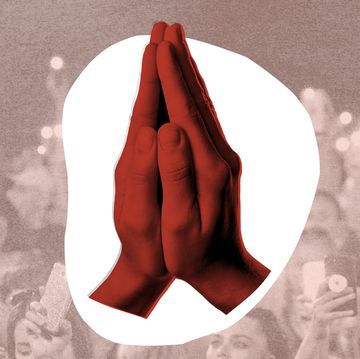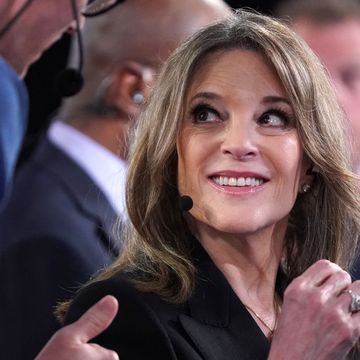When I heard about the tragic murder of 18-year-old Nia Wilson, who was stabbed to death in an unprovoked attack in Oakland last month, I could feel my heart begin to bleed. My community of black women were grieving yet again.
As we grappled with the realities of Nia’s death, I began to use Instagram to facilitate a discussion and flesh out questions like: How many more black women and girls must die before mainstream media considers it a worthy story to cover? How could they possibly take away her white male murderer so gently in handcuffs, while black men are thrown to the ground during traffic stops? Why aren’t the recorded wails of her mother and the tears of her father enough for the whole world to be demanding justice right now? And where are the voices of all my white feminist friends when a black woman had been tragically murdered?
Almost immediately, at my request, hundreds of commenters asked the white women who they saw as friends and leaders to use their platform to highlight the tragedy of Nia’s death with the same outrage of their black feminist allies. And many did—both demanding that justice be served while expressing their disbelief that such a story hadn’t gained national attention in the same way that Laci Peterson's or JonBenét Ramsey's had. But there were just as many white women—women whose bios claim titles like “social justice warrior” and “intersectional feminist”—that somehow took this call for solidarity as a personal attack.
Instead of sharing in the outrage of Nia’s brutal murder, they came with fury for being tagged in a post that they felt challenged their own perceived feminist accomplishments. There were grand displays of defensiveness, demands that they be acknowledged for all the things they had done for black people in the past, and a terrifying lashing out that included racial slurs and doxing.
The fragility of these women was not a surprise to me. In a crucial moment of showing up for our marginalized community, there was more concern about their feelings and ego as opposed to the fight forward for women as a whole. What could have been a much-needed and integral display of solidarity and true intersectionality quickly became a live play-by-play of the toxicity that white-centered feminism can bring to the table of activism.
It is the type of behavior that rests under the guise of feminism only as long as it is comfortable, only as long it is personally rewarding, only as long as it keeps "on brand." But if the history of this movement taught us anything, it is that intersectionality in feminism is vital. We cannot forget the ways that suffragettes dismissed the voices of black women, sending them to the backs of their marches, only for black activists like Ida B. Wells and Anna Julia Cooper to make major moves while fighting for the vote in tandem with their fight for rights as black people—ultimately shifting the shape of this country. If there is not the intentional and action-based inclusion of women of color, then feminism is simply white supremacy in heels.
Going up against liberal progressive white feminists who refuse to let down their guard of “ultimate liberation” to actually learn from women of color—who have been fighting this fight with grit and grace for generations—is the most straining part being a black feminist activist. Still, as disheartening as the actions of many of these women who were "called in" became, my highest hope is that this bizarre episode serves as a lesson, a dissection if you will, of what toxic white feminism actually looks like. Let's take a dive into a few of the items in The Toxic White Feminism Playbook:
Tone Policing
When women of color begin to cry out about their pain, frustration, and utter outrage with the system that is continuing to allow our men to be murdered, our babies to be disregarded, and our livelihood to be dismissed, we are often met with white women who tell us perhaps we should “say things a little nicer” if we want to be respected and heard.
Spiritual Bypassing
The easiest way for white women to skirt around the realities of racism is to just “love and light it away”. When confronted with ways they have offended a marginalized group with their words or actions, they immediately start to demand unity and peace; painting those they harmed as aggressive, mean, or divisive.
White Savior Complex
Many white women insist that there is no way they could be part of the problem because of their extensive resume of what they’ve “done for you people.” Instead of listening to what the women of color are trying to express, they instead whip out the Nice Things I’ve Done For Black People In The Past, which often includes everything from “says hi to the black man next door every single morning” to “saved a black child through adoption and treats them just as nicely as my white children.”
Centering
This is the most common of all. White women get so caught up in how they feel in a moment of black women expressing themselves that they completely vacuum the energy, direction, and point of the conversation to themselves and their feelings. They start to explain why race is hard for them to talk about, what they think would be a better solution to the topic at hand, and perhaps what women of color can do to make it more palatable.
As these things play out over and over again, it is made painfully obvious that many white women believe that the worst thing that can happen to them is to be called a racist. Let me be clear, it is not. Seeing your child gunned down in the street by the police unjustly is much worse, being turned away for medical care due to race and underlying biases by medical staff, resulting in death, is much worse, being harassed by authorities only to be charged yourself instead is much worse.
But even moments of explicit dehumanization to the black community haven’t been able to rally the majority of liberal white women to join us in our fight for racial justice. I've learned through my work that white women seem to only digest race issues when it is reframed in the light of (white) feminism. So I often have to lay it out this way:
- When you try to exclude yourself from the conversation of race by saying things like “I don’t see color,” or “I married a black man and have brown kids,” that's just as irrational as a man saying there is no way he could be sexist or misogynistic because he has a daughter.
- When you seek to not be lumped into the conversation about oppressive systems against marginalized people, because you view yourself as woke, you are essentially screaming “not all men.”
- When you try to rationalize police brutality by saying “but black people also kill black people,” you’re coming in with the same argument that men have when they say “she shouldn’t have worn that skirt, she deserves to be raped”.
- When you walk into black or brown spaces and “suggest” how they can more aptly reach white people on the topic of race you are basically mansplaining, only now it's whitesplaining how people of color should approach their own activism.
- When you begin to feel defensive about the conversation of race, demanding explanations, it is like a man walking into a women’s space saying: “Make me feel more comfortable in this moment, even though the point of this space is sorting out how I make you feel uncomfortable everyday in multiple ways.”
So what does allyship actually look like? Accepting the reality of this country's dynamics. White skin yields white privilege and an ally is willing to use their privilege to fight with and for those who are marginalized. Allyship means voting for elected officials who have a track record of ensuring the most marginalized among us are heard and advocated for. Allyship means using your sphere of influence whether it be your dining room table or the boardroom of your company to call out racist actions and ideals. Allyship means uplifting the voices and experiences of people of color so that we are not continuously drowned out and ignored.
What makes allyship so hard for most? Many liberal white woman have an immediate reaction of defense when someone challenges their intentions. And it is in that precise moment they need to stop and realize they are actually part of the problem. It is never the offender who gets to decide when they've offended someone. If you feel yourself dismissing the words or experiences of people of color—because you think they're "overreacting" or because you "didn't know" or because "it has nothing to do with race"—it's often due to your ego, not rationale. Listen and learn, instead.
Dr. Robin DiAngelo, a white woman sociologist who studies critical discourse, reminds us in her new book White Fragility that “the key to moving forward is what we do with our discomfort. We can use it as a door out—blame the messenger and disregard the message. Or we can use it as a door in by asking, Why does this unsettle me? What would it mean for me if this were true?”
Racism is as American as pie. In order for the feminist movement to truly be progressive and intersectional, white women must face this fact and begin to take on their load of work. We are long overdue to dismantle this system, which, if it is not intentionally and aggressively addressed, will defeat us all in the end.
Follow Rachel Cargle on Instagram and respond to this post on the Harper's BAZAAR Facebook page here.
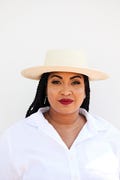
Rachel Cargle is an activist, entrepreneur, and philanthropic innovator. She founded the Loveland Group and the Loveland Foundation. Her debut memoir, A Renaissance of Our Own, will be published in May. Find her on Instagram @Rachel.Cargle.
